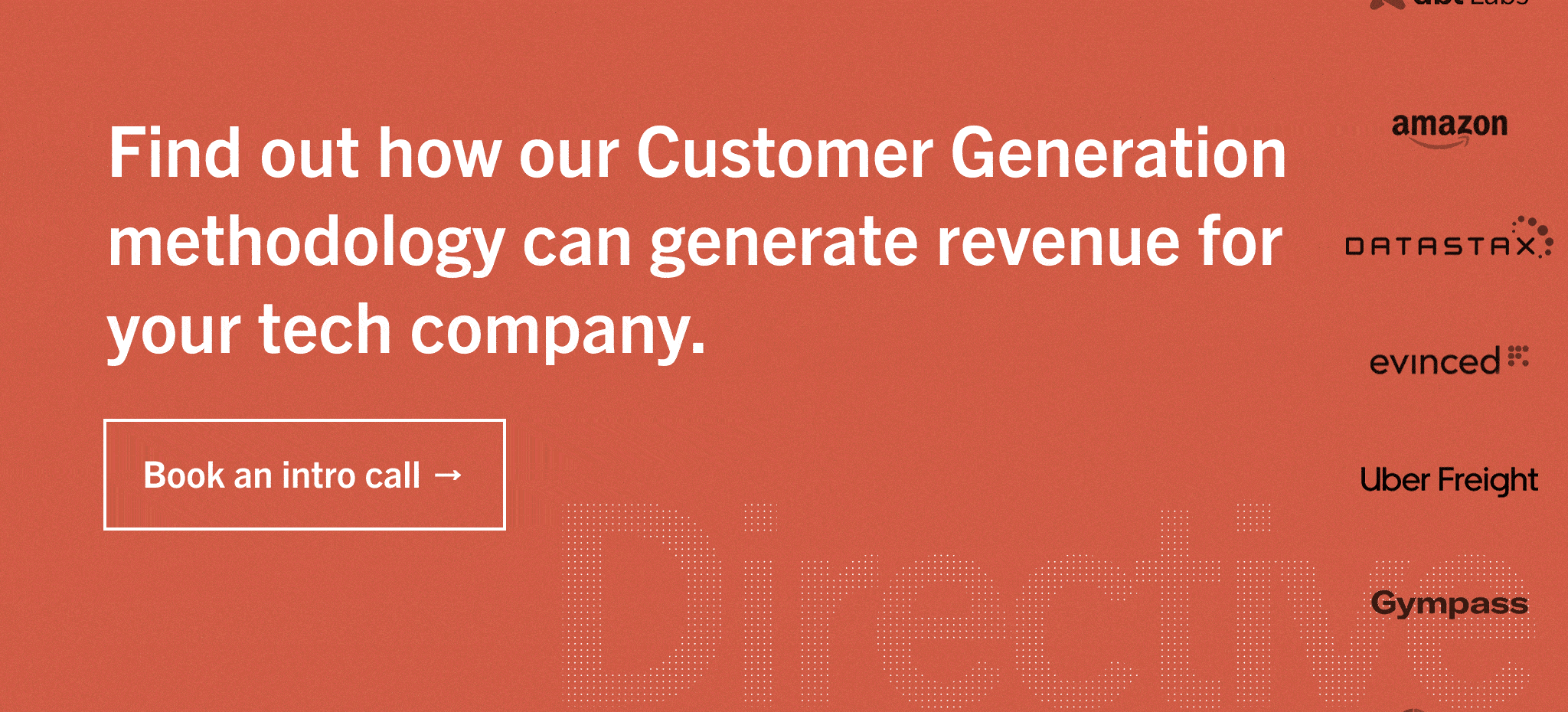What is a Marketing Qualified Lead?
A marketing qualified lead (MQL) is a lead whose firmographic characteristics and history of engagement with a brand indicate that they are likely to become a customer in the future.
In tech companies, sales and marketing teams work together to establish the criteria for designating a lead as an MQL. Once the criteria have been established, marketing teams are responsible for generating leads, nurturing those leads into MQLs via cross-channel engagement, and passing MQLs on to the sales department.
Many software marketing/sales teams use some form of lead scoring to determine when a lead should be designated as an MQL by the marketing department and handed off to the sales department.

What is Lead Scoring and Why It Matters
Lead scoring is a technique used by tech companies to predict the likelihood that a prospective customer will convert into a paying customer.
Developing a Lead Scoring System
Software and tech companies can use firmographic and historical behavioral data from their existing customers to develop an ideal customer profile (ICP) and understand how engagement with various touchpoints in the customer journey impacts the likelihood of a sale.
Armed with this knowledge, the company can establish a lead scoring system that awards points to each lead based on how well they fit established ICPs and their history of engagement with customer touchpoints that historically correlate with sales outcomes.
SnapApp’s lead scoring system, for example, leveraged behavioral indicators across five marketing channels to predict a lead’s readiness to purchase. This system gave more weight to behaviors that correlated more strongly with revenue outcomes, and even included negative behavioral indicators that reduced the prospect’s lead score.
Why Does Lead Scoring Matter?
Lead scoring enables marketing teams to readily identify the qualified leads that are most likely to convert and ready for the next stage in the customer journey – often a conversation with a member of the sales team.
Lead scoring results in two outcomes that are important for overall SaaS growth success: quality and efficiency.
By identifying the most promising leads in the marketing funnel and designating them as MQLs, marketers ensure that only the highest-quality leads are forwarded to the sales team for contact and follow-up.
As a result, the sales team can operate much more efficiently. Instead of sifting through piles of low-quality leads, the sales team can focus exclusively on engaging with high-quality MQLs that have been vetted by the marketing team and are the most likely to convert.
With the sales team operating at peak efficiency and allocating time and resources to qualified MQLs, SaaS companies can shorten the sales cycle, accelerate revenue generation, and reach profitably more quickly than their competitors.
What are the Qualifying Criteria for an MQL?
Marketing and sales teams work together to build lead scoring systems and establish the qualifying criteria for MQLs – but what exactly does that include?
The criteria for identifying an MQL typically fall into two categories: firmographic criteria and behavioral criteria.
Firmographic Criteria
A lead scoring system can be constructed to assign points to a lead based on how closely its firmographic characteristics approximate the selling organization’s ideal customer profile. Firmographic criteria includes things like:
- Target market or industry vertical
- Firm size (number of employees, number of customers, or annual revenue)
- Geographical location
- Level of maturity
- Readiness to implement technology
Behavioral Criteria
A lead scoring system may also assign points based on a customer’s behavioral history and engagement across the customer journey. Sophisticated lead scoring systems may award a greater number of points for engaging with specific web pages or content assets that are more strongly correlated with sales outcomes.
Behavioral criteria can include things like:
- Number of visits to company website
- Time on website
- Email engagement (subscription status, open rate, etc.)
- Social media engagement
- Redeeming an offer on company website (downloading gated asset, accepting free trial, etc.)
- Submitting personal information on company website
- Submitting a request for contact on company website
Marketing technology gives SaaS companies the ability to track the behavior of their website visitors and leads across hundreds of dimensions, but it’s up to Marketing Operations professionals to crunch the data and determine which behavioral and firmographic metrics best correlate with sales and revenue outcomes.
MQL vs SQL - What’s the Difference?
MQLs and Sales Qualified Leads (SQLs) are two valuable types of qualified leads for B2B SaaS companies, but do you know the difference?
MQLs are qualified by the marketing team, typically after meeting a certain threshold in the lead scoring system based on their firmographic data and engagement history. MQLs are passed on to the sales team, often to someone in the Sales Development Representative (SDR) role, who contacts the lead to assess their readiness to advance in the sales process.
An SQL is a lead that has been vetted by a member of the sales team, often an SDR, as being prepared to move forward in the sales process. The role of an SDR in the sales/marketing process is to convert MQLs into SQLs by contacting them directly and asking qualifying questions.
A common framework for qualifying an SQL is known as BANT:
- Budget – Does the lead have the budget available to purchase the solution?
- Authority – Does the lead have the authority to make the purchasing decision?
- Needs – Does the lead have a genuine business need for the solution?
- Timeline – How soon is the lead looking to purchase/implement the solution?
When an MQL meets the BANT criteria, they may be designated as an SQL by a member of the sales team. The next step could be scheduling a product demo where a sales representative or account manager will attempt to finalize the sale.
What is the Value of an MQL?
An MQL is a high-quality lead for the sales team, but there are still a few steps before the lead will be converted into a paying customer.
The value of an MQL can be calculated using based on three factors:
- The sales team’s MQL → SQL Conversion Rate
- The sales team’s SQL → Sale Conversion Rate
- The SaaS company’s overall Customer Lifetime Value (CLV/LTV) Metric.
For a SaaS business with LTV of $20,000, an SQL conversion rate of 40%, and an MQL conversion rate of 25%, the value of an MQL could be calculated as: ($20,000)(0.40)(0.10) = $800
While generating MQLs is a necessary step in the sales/marketing process, it should never become the sole focus of marketing teams, or a metric by which marketing success is measured.
Our Customer Generation methodology focuses on generating SQLs and paying customers for our tech clients because, ultimately, it’s the customers who pay the bills—not MQLs.
If you want your marketing efforts to start generating revenue, book a call with us today to learn how you can gain a competitive edge with Customer Generation.


